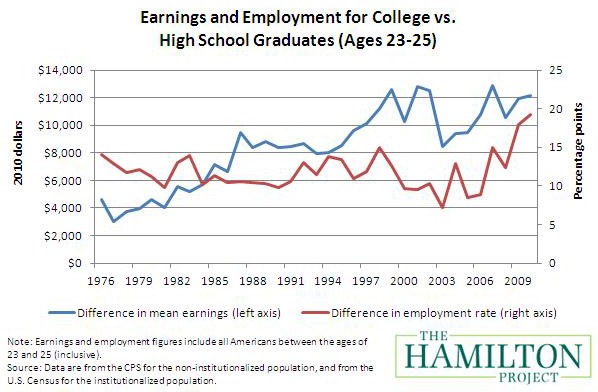Best Investments for Recent Graduates
Post on: 29 Июнь, 2015 No Comment

Are you a recent graduate? Did you just land your first job, or get some money from the grandparents for graduation? If any of these apply to you, you may be wondering what you should do now. Ive previously written The College Students Guide to Investing. and it has a lot of great information for college students and where to start. However, if you are in your first job and getting started investing, here are some things to consider.
Retirement Accounts
Yes, you are only 22-23 years old, but you need to think about retirement and not just about what youre going to do when you get there. You should really look at retirement accounts as great vehicles for your investments. I say vehicle because, no matter which account type you choose (401(k), IRA, brokerage, etc.), you have investments inside of it. The account type is just a structure to hold your investments in, and it structure has its own rules.
If your employer offers a 401(k), you should jump into it especially considering most employers offer a matching contribution. You would be leaving money on the table if you didnt take it. Second, you should consider a Roth IRA. The reason is simple, you use after-tax money to fund the account, and it will grow tax free until you retire. You can also pull out your contributions at any time if you need them, so you dont have to feel like your money is locked up forever.
Actually Investing
Now that you have decided on your investment vehicle, you need to decided what to put your money into. Since you are young, you have time on your side. Time is a huge benefit because it allows you to more comfortably ride out the ups and downs of the stock market. It is important to remember that all investments carry risk, primarily the risk that they will lose value. So bear that in mind when you invest.
If you consider yourself an average investor, think about investing in a portfolio that includes the following:
- 60% Mutual Funds or ETFs that track a major index, such as the S&P500
- 20% Mutual Funds or ETFs that track a major foreign index, such as the MSCI EAFE Index, which tracks developed foreign countries
- 10% Mutual Funds or ETFs that track a developing country index, such as the MSCI Emerging Market Index
- 10% Mutual Fund or ETFs that invest in high quality bonds, such as treasuries or high quality corporate offerings
Basically, by doing this, you are giving yourself a balanced portfolio that is mostly invested in stocks not just US stocks, but stocks worldwide. If you consider yourself to be more risk adverse, you can lower the equity percentage and increase holdings in bonds, or even include a money market fund. If you want more risk, you can increase your international and emerging market exposure.
Get Started Early
The bottom line is that you should get started investing as early as possible. This will not only help if times get turbulent, but the power of compounding will help your returns grow even more over time.
Readers, do you have any advice for recent college graduates getting started investing?














